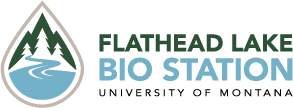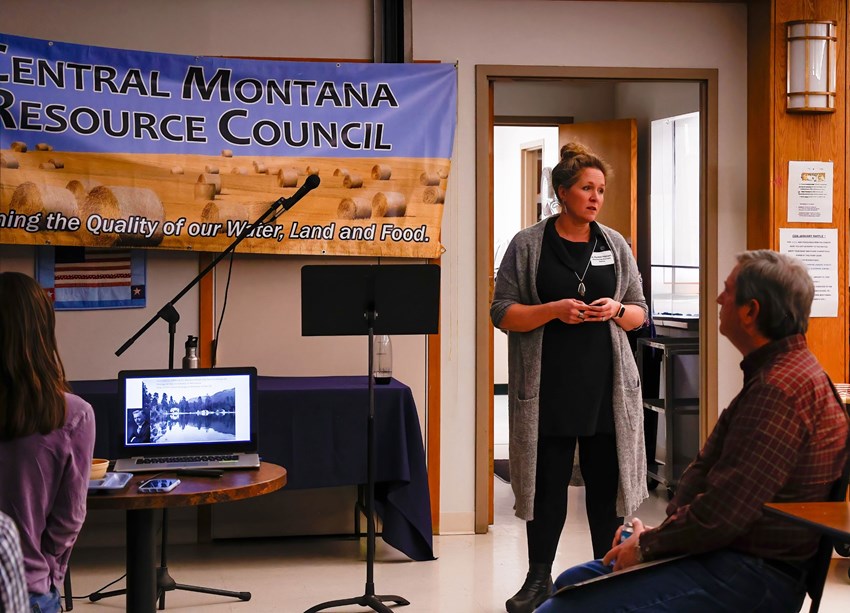At the end of January, the MMW team made the trek over to Lewistown, Montana to attend the “Hot Chili, Cold Beer, Clean Water Seminar” sponsored by The Central Montana Resource Council, Big Spring Watershed Council, and MSU Fergus Extension. Postcards were sent out to community members, posters were placed around town, emails were sent, and word spread through local radio stations and the newspaper. The event ended up drawing in 75 attendees which included farmers, ranchers, landowners, DEQ, DNRC, and folks from along the Ross Creek Fork.
The Central Montana Resource Council (CMRC) kicked the seminar off following a tasty helping of hot chili, cold beer, and homemade cookies and brownies. CMRC is a grassroots nonprofit group of local citizens in Fergus, Judith basin, and surrounding counties. Their mission is to protect central Montana’s quality of water, viability of family farms and ranches, and the ability of people who live in central Montana to shape the public policies and decisions that affect their land, water, and lives.
Dr. Adam Sigler, Extension Water Quality Specialist and Assistant Professor from Montana State University began with a presentation on the historic roots of water quality law, water quality standards, point vs nonpoint pollution, impairment of Montana streams and rivers, and monitoring in the Judith basin. Assistant Research Professor and MMW program leader, Dr. Rachel Malison, spoke about the need for volunteer water quality monitoring in Montana. Malison explained how the MMW program operates, provided interested parties with resources, and addressed why people should be involved in volunteer monitoring. Clint Smith from Montana Fish, Wildlife & Parks discussed Watershed Restoration Plans (WRP), which are locally developed documents that manage, protect, and restore water resources on a watershed-wide scale. These documents can increase funding opportunities to restore impaired water.
The speakers gathered on stage along with Scott Brown from Montana Salinity Associates for a Q & A session with questions generated by audience members. The audience learned what makes a stream impaired and why they should be concerned to participate in water monitoring. Attendees were encouraged to get involved because the quality of water impacts us all! As Mark Udall once stated, “Ranchers need clean water for their stock, farmers need it for their crops, every employer needs it to stay in business, and every living thing needs it for life... The law needs to be clear to protect water quality and the rights of landowners.” We’re thankful for the invitation to join concerned and passionate citizens at this event, and for the opportunity to expand our presence to other parts of the state.
Paul Sanchez of KRTV Great Falls interviewed the speakers and the segment can be viewed here.





